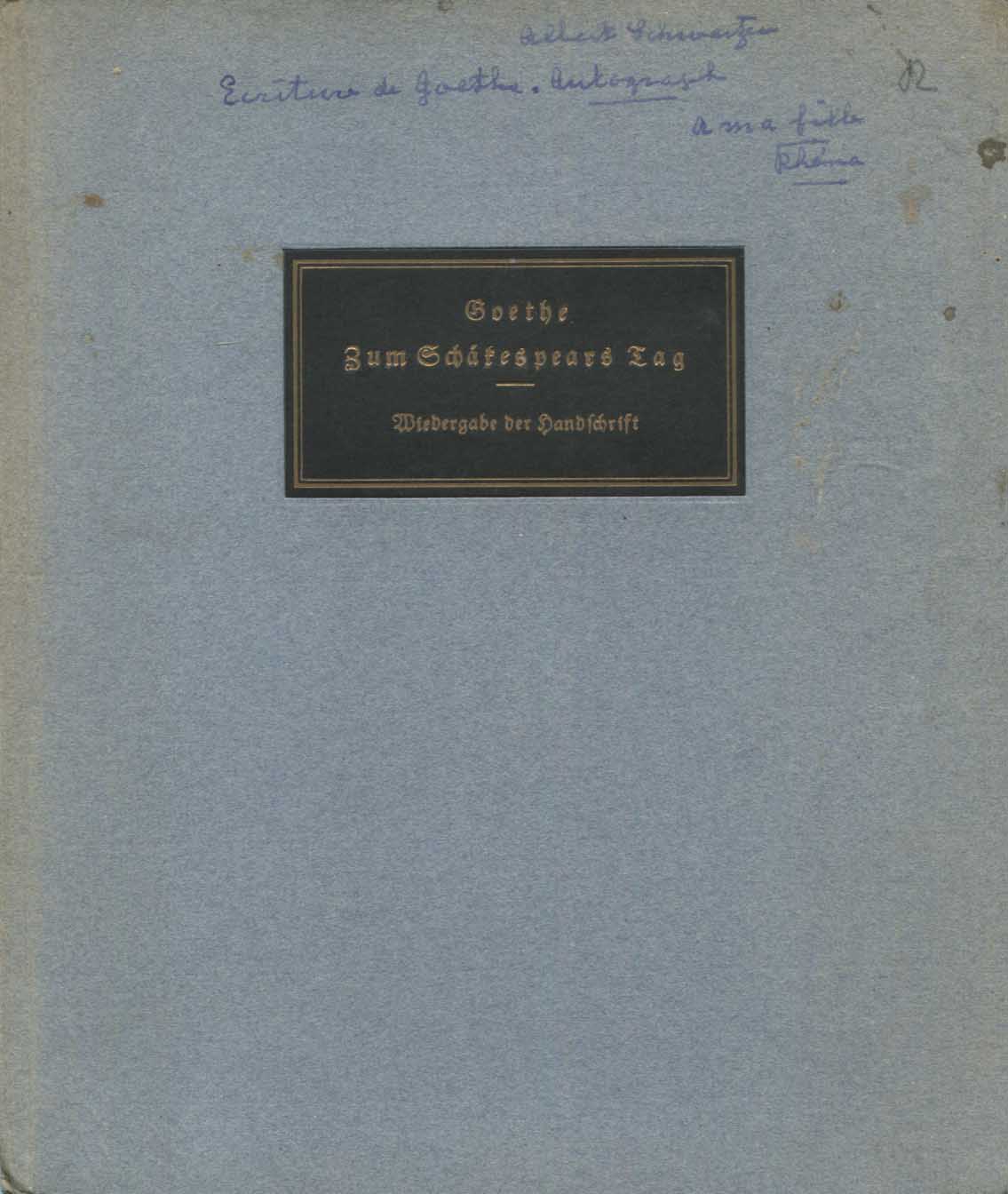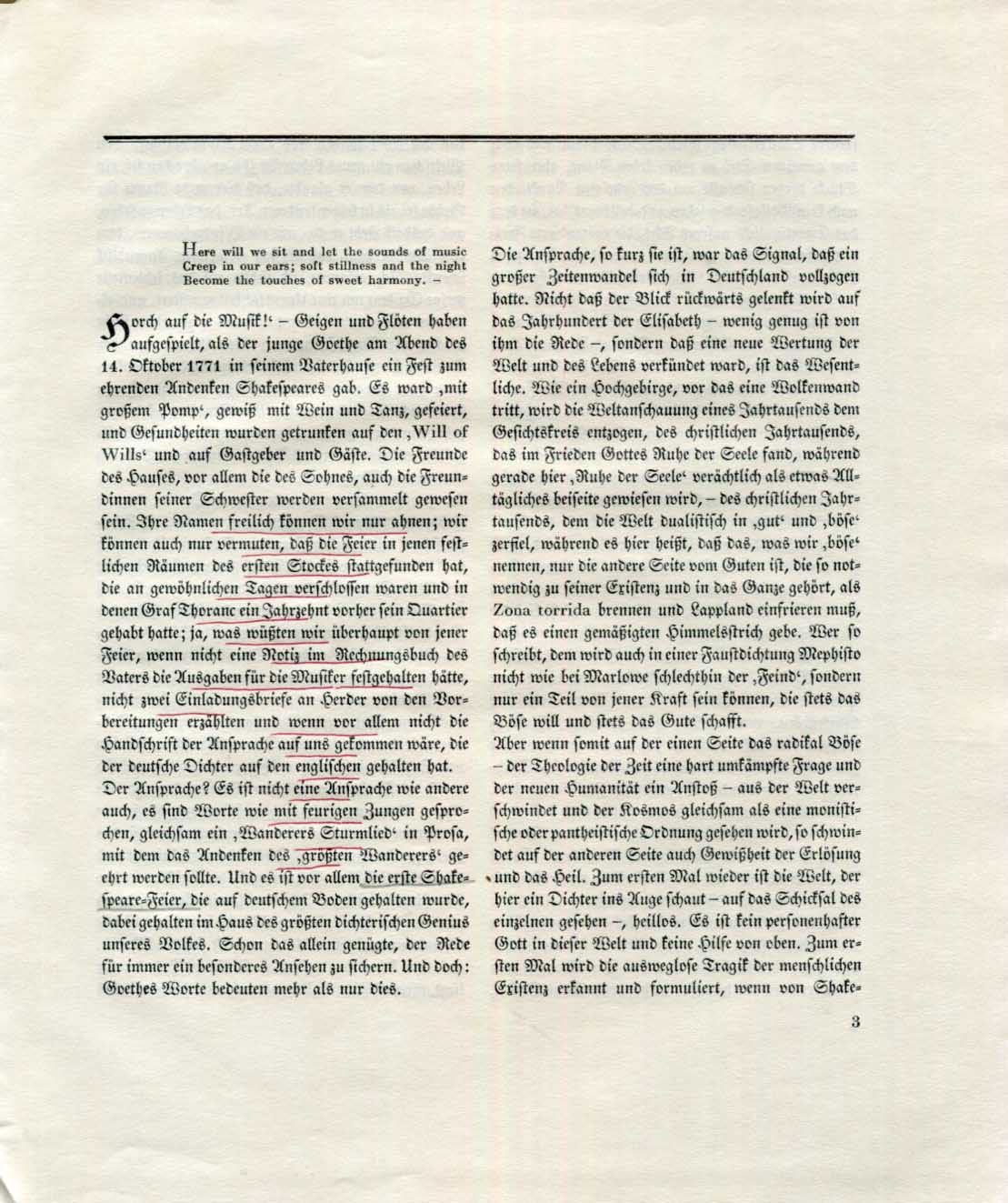Descripción
Signed booklet: `Goethe - Zum Schäkespears Tag* - Wiedergabe der Handschrift`, in German, published by Goethe Gesellschaft (Institute), Weimar, 1938, hardcover booklet, 7,75 x 9 inch, 20 pages, signed and dedicated (to his daughter Rhena Schweitzer Miller, 1919-2009) on the front cover in blue ink "Albert Schweitzer - Ecriture de Goethe. Autograph - à ma fille - Rhena", with browning & stains to the edges of the cover, and scattered mild signs of wear - in fine condition.
* `Zum Schäkespears Tag` is a speech by the 22-year-old Johann Wolfgang von Goethe, which he delivered in his parents' house on October 14, 1771 on the occasion of Shakespeare Day in Frankfurt am Main; In it he honors the English poet and playwright William Shakespeare for his work and expresses his very personal relationship with him. Along with Herder's program document Shakespear, it is considered an important document of the Shakespeare enthusiasm of the Sturm und Drang period.
Más información sobre la persona
Profession:
(1875-1965) Alsatian polymath. He was a theologian, organist, writer, humanitarian, philosopher, and physician. He received the 1952 Nobel Peace Prize for his philosophy of `Reverence for Life`.
Year of Birth: 1875
Certificado de autenticidad
Todas nuestras piezas se venden con un certificado de autenticidad. Si una pieza resulta estar equivocada o si no le gusta un autógrafo, recuperará su dinero durante toda la vida.
Pago y seguridad
Su información de pago se procesa de forma segura. No almacenamos los detalles de la tarjeta de crédito ni tenemos acceso a la información de su tarjeta de crédito.



